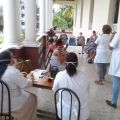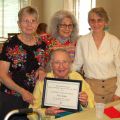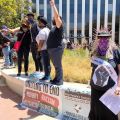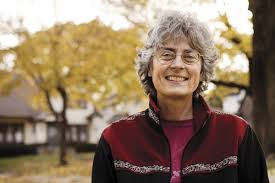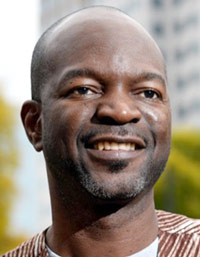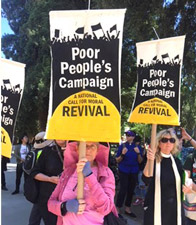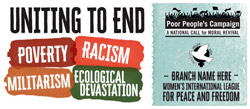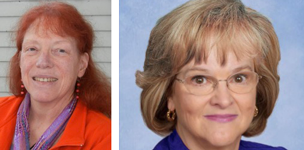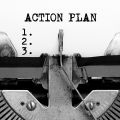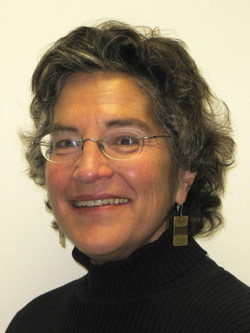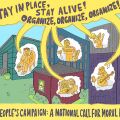A Maternity Home in Santiago de Cuba. All photos by Yoamaris Neptuno Dominguez, used with permission.
By Leni Villagomez Reeves
Co-chair, Cuba and the Bolivarian Alliance Committee
July 2020
Some COVID-19 Facts

Between May 15, 2020, and June 21, 2020, known COVID-19 cases in the United States went from 1,412,121 to 2,248,029, while Cuba’s rose from 1,840 to 2,320 (that amounts to 6,791.6 cases per million people in the US on June 21 vs. 210 cases per million people in Cuba at the same time). You do not have to be a statistical wizard to know that these differences are significant.
There is a lot to unpack, though. Cuba’s deaths from COVID-19, as a percentage of population, are roughly 2% of those of the US. A smaller percentage of Cubans with COVID-19 die. And it is clear that far fewer Cubans died of the virus in the past 5 weeks than in any corresponding earlier period. In the past 5 weeks the US experienced about 37% of its total cases. Cuba experienced about 20.5%. This is especially startling since the pandemic hit the US prior to arriving in Cuba. But the real shocker is that Cuba’s number of COVID-19 cases, again as a percentage of population, are about 3% of what we are experiencing in the US.
Innovative Medications and Contact Tracing
Why do fewer Cubans die? For starters, it is not because of racial differences from the US population. Although race is defined quite differently in Cuba than in the US, a far greater percentage of the Cuban population are people who would here be considered Black. And a huge proportion of the rest of the ancestry is Spanish, and the death rate for people infected with this virus in Spain is horrifically higher (at over 9%).
Absolute answers are hard to establish, of course. But here are some differences that must be considered:
Cuba has some innovative medications, and they were early adopters of dexamethasone as well. The pharmaceuticals with which Cuba is combatting COVID existed prior to the rise of the epidemic and were used to treat both viral illnesses and other conditions; they were not designed specifically for this use. There was positive SARS experience with Human Recombinant Interferon alfa 2B, the best known and most sought after of these drugs. Scottish researcher Helen Yaffe, whose book We Are Cuba discusses Cuban biotechnological innovation, among other subjects, reports that desperate doctors from New York hospitals have called her to ask how they can access this medication. This is not possible due to the US blockade of Cuba, of course. CIGB 258, monoclonal antibody Anti-CD-6, and Itolizumab round out the meds used to successfully combat cytokine storm. There are other medications that have been used for the whole population as immune system boosters. But medications alone do not explain Cuba’s success in confronting COVID-19.
 The truly startling point that these numbers make clear is that fewer Cubans are dying from COVID-19 because fewer Cubans are getting the infection. The technique they are using to prevent infection with COVID-19 is older than the oldest antibiotic, older than anyone now living, older than the idea that everyone, even the poor, should have an equal chance to survive. It is called contact tracing, and it is simple boots-on-the-ground public health. You find a person with COVID-19 infection. You ask where that person has been and with whom they have been in contact. You find and test those people, and when you find a positive, you repeat the process. You treat the infected person, in hospital if they need it, or at home if they are not in trouble, and you isolate them. In addition, thousands of family practice doctors and students of medicine and dentistry daily make rounds to tens of thousands of homes to do epidemiological surveillance. Cuba has not waited for those who are infected to present themselves, but has gone in search of them.
The truly startling point that these numbers make clear is that fewer Cubans are dying from COVID-19 because fewer Cubans are getting the infection. The technique they are using to prevent infection with COVID-19 is older than the oldest antibiotic, older than anyone now living, older than the idea that everyone, even the poor, should have an equal chance to survive. It is called contact tracing, and it is simple boots-on-the-ground public health. You find a person with COVID-19 infection. You ask where that person has been and with whom they have been in contact. You find and test those people, and when you find a positive, you repeat the process. You treat the infected person, in hospital if they need it, or at home if they are not in trouble, and you isolate them. In addition, thousands of family practice doctors and students of medicine and dentistry daily make rounds to tens of thousands of homes to do epidemiological surveillance. Cuba has not waited for those who are infected to present themselves, but has gone in search of them.
Above: A young woman in an ‘Eres Más’ shirt sewing face masks on an old treadle sewing machine. Eres Más is a campaign for gender equity and women's autonomy.
Another amazing statistic is that apparently the US has tested a larger percentage of the population than Cuba has. However, testing has been done in a disorganized and chaotic fashion, and has served to provide statistics without this information being used to actually prevent disease.
Cuban Health Authorities Are Trusted
Of course, for any of this to work, you need an educated and informed public, and for people to trust that, if they are found to be ill, they will be cared for. It is almost shocking from the point of view of the US to see how clearly and completely Cuban health authorities have identified and cared for patients and their contacts, and the transparency with which they have communicated what is going on to the Cuban people. Each day the number of tests done, the results, and the details of each new case found (omitting the name) are published, along with the number of contacts currently being surveilled for each person confirmed positive for the virus. The number of people hospitalized, their locations, their conditions, and even clinical details of those who have died (again, maintaining anonymity) are all recorded clearly.
Dr. Francisco Durán, the Epidemiology Director for the Ministry of Health, does a press conference regularly. They are real pressers – in one I saw back in March, a young man from Radio Rebelde asked a two-part question and got the answer to only half his question. He stood up and repeated the rest of the question, and got an answer to the second part, too. (Dr. Durán has become sort of a cult figure, rivaling in popularity José Rubiera, the meteorologist whom Cubans trust to predict hurricanes.)
 Cuba has a free universal access health system. People have a family doctor who is responsible for them, and they are accustomed to see the doctor when they are ill. They have an organized system of secondary and tertiary care. They do not have a multiplicity of jurisdictions and profit centers competing for access to either protective equipment or profitable patients - and seeking to avoid patients whose care will represent a financial loss. There are no “wallet biopsies.” There are no billing departments. No one will recover from severe illness to face bankruptcy. Nor will they die and leave their family to face financial ruin.
Cuba has a free universal access health system. People have a family doctor who is responsible for them, and they are accustomed to see the doctor when they are ill. They have an organized system of secondary and tertiary care. They do not have a multiplicity of jurisdictions and profit centers competing for access to either protective equipment or profitable patients - and seeking to avoid patients whose care will represent a financial loss. There are no “wallet biopsies.” There are no billing departments. No one will recover from severe illness to face bankruptcy. Nor will they die and leave their family to face financial ruin.
Above: A Cuban doctor at a consult.
Cuba closed schools, cancelled public events, and suspended international travel relatively early. They did not force anyone back to work. The stay-at-home measures and the social distancing, the selective zone, municipal, and province quarantines, based on where infections are actually occurring — all these have allowed Cuba to break the chain of infection.
People in Cuba are having to manage a very contagious illness in a setting where physical contact and social closeness are culturally expected. Communication, information, and persuasion, along with community self-discipline and public health measures, are being followed but not without a lot of sacrifices. People are doing their best but social isolation is very hard on most Cubans and people struggle with the necessities of daily life, due to shortages and scarcities mostly caused by the US blockade of Cuba. But it’s working. How about us?
For more information about how Cuba is containing COVID-19 and how we can bring some of their expertise to save lives here, http://savinglives.us-cubanormalization.org
Contact Leni Villagomez Reeves at lenivreeves@gmail.com

